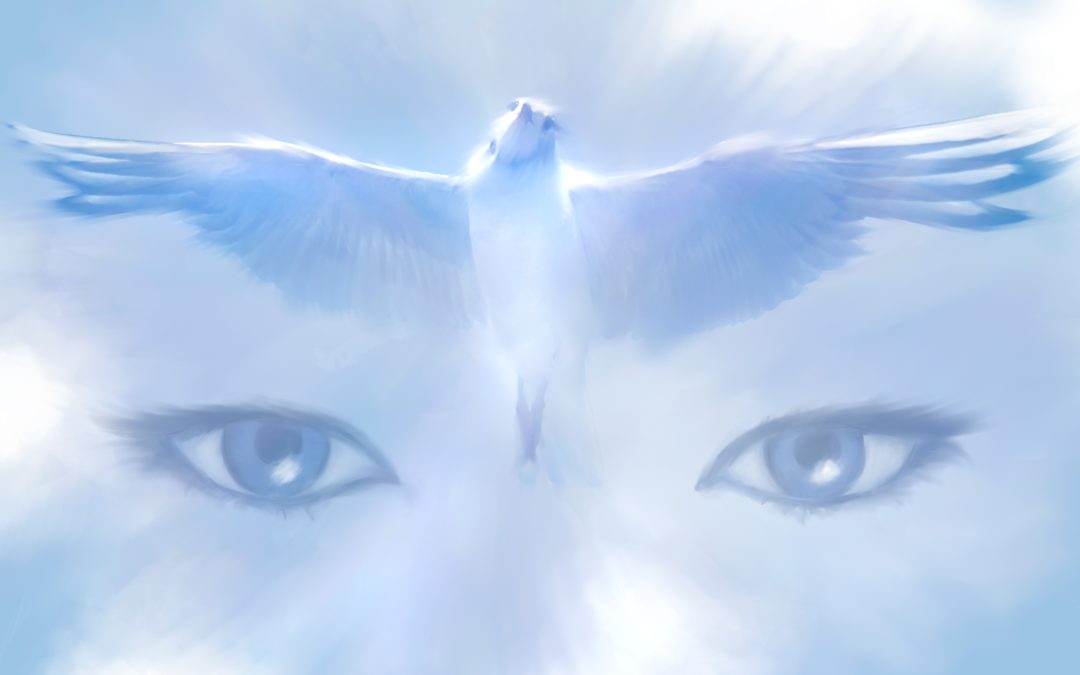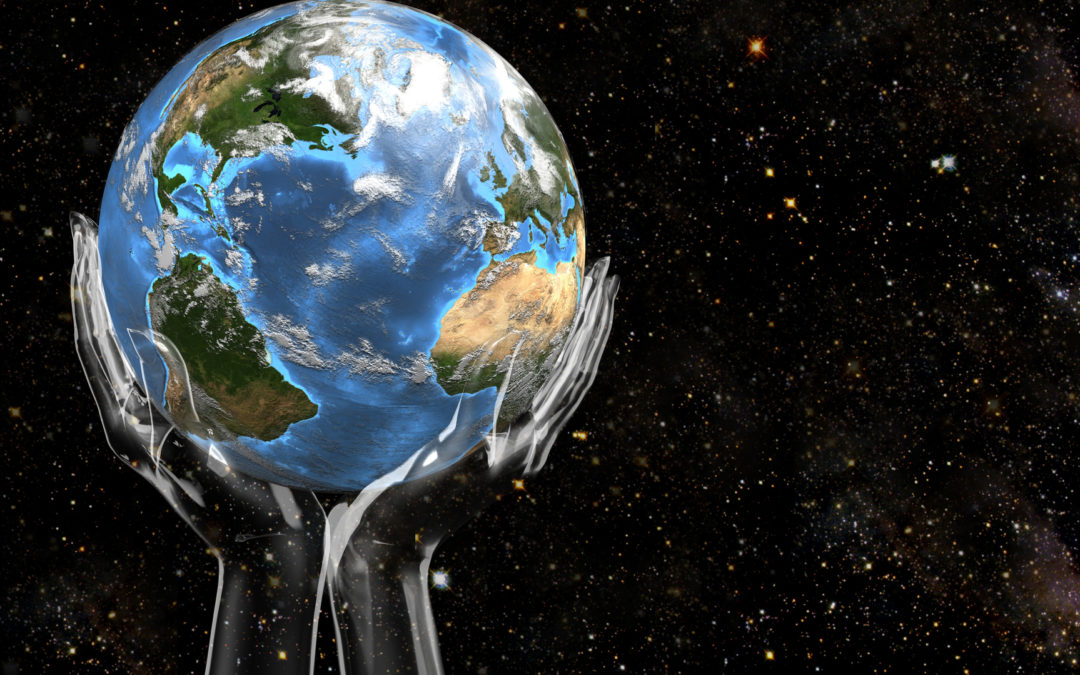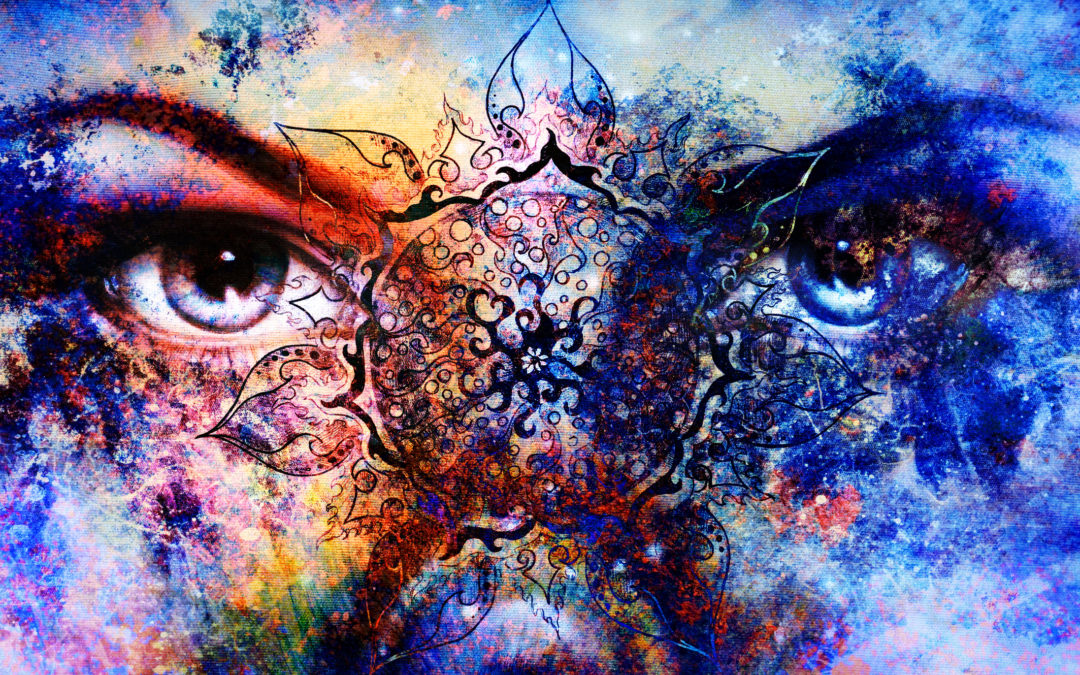
Caring is Scary
Dear Elisabeth,
I see you working hard every day to make a difference in your life and in the world. I hear you talking about how things can be better, how we don’t have to live in pain. I know you mean well with your optimism and your hopefulness. But I don’t think you are right. I can’t understand how life could be the way you think. How is this possible? My life has never represented the world you believe exists. Nobody cared about me. They only cared when they wanted something. Maybe they wanted to abuse me. Maybe they wanted me to do chores or fix dinner or loan them money. But they never cared.
And the response was always the same. I could do nothing right. Everything I did was wrong. Everything I touched was messed up. Every time I tried to make something better or get any appreciation, it ended in disappointment for me and others. There was nothing good that came from my efforts to make it different. And they didn’t just reject what I did. They rejected me as a person. They rejected all that I represented as a human being. They rejected my creativity, my femininity, my intelligence, my hopes and dreams. They wanted me to know that I wasn’t good enough. I wasn’t good enough at anything. I never lived up to their expectations and no matter what I did, I never would.
Why would you want to make your way in a world full of people like this? Why would you want to live in a universe that clearly doesn’t care if you are here? I can’t do it. I had to shut it all down. I had to stop caring or I would have crumpled on the floor in despair. The pain was too great to allow myself to care. I could not keep going with that hanging over my head. I had to detach. There was no other way. And now here you are with your hopefulness telling me that it is okay to care. It is okay to dream. It is okay to believe that something good can happen or that life could be what I always wanted. How am I supposed to jump on board with that?
Look. I am not trying to reject you. You seem nice. I can tell you mean well. You listen to me, to what I have always wanted, to my nightmare experiences from the past. You even let me write your blog. That’s pretty cool. But you are only one person. How can you protect me from the critical “naysayers” of the world? You can’t. They are everywhere. They are the only people I have ever met. While it is tempting to think about my dreams that were squashed as a child, it is dangerous. The disappointment could be too much. I’m not sure I could handle it again. I’m not sure I have another round left in me.
The Goddess
_____________
Dear Goddess,
I want to start by telling you how much I honor and respect your decisions after all you have been through. You have heard nothing but negativity. You have had nothing but rejection. It is no wonder you have chosen to give up, to stop caring. I really get it. I get it deeply. I feel your futility and I know it must have been hard to stay alive through all of your experiences.
But what I have to offer you is different. It doesn’t come with a promise of approval and unconditional love from others. Honestly, that is unrealistic. It isn’t possible. You are right about that. What I have to offer doesn’t require their approval. It is a new way of living. Honestly, it is the way you were meant to live. It is how you have always tried to convince me to live, but the approval-seeking got in the way. It only takes our approval now. If we decide we want it, we can have it. Of course, there are time and money to consider. The controller is there to remind us of that. But with the right commitment to what we want, we can create it. And what others think won’t matter.
Why did it matter before? In childhood, it has to matter. That is why life can be so confusing. The rules change in adulthood, but nobody tells us. They don’t tell us we can do things differently. That part gets left out of the “How to Adult” manual. We have freedom now. We are not required to follow those rules anymore. Yes. There are laws. But all those made-up childhood rules don’t apply. We don’t answer to those people.
So please let me show you another way. Please share your hopes and dreams with me. Please trust in me to make them happen. And please be patient with me as I navigate the fears of the other inner parts and figure out the best way to make our dreams happen. Share with me any futility you need to share, but know that I will work best with you by my side. I need you by my side. I hope you will consider what I have said here. I am truly excited about what is to come.
The first to love you unconditionally,
Elisabeth

Was That My Intuition?
How do I know what I want?
This is the most common question asked by my clients. And it doesn’t surprise me. We grew up in an environment which did not allow us to connect with ourselves. We were not allowed to ask for what we wanted. We were not allowed to feel how we felt. We were not allowed to say no to what we didn’t want. After trying to express ourselves authentically to no avail, we learned to shut it down. It was too painful to listen to the cries from inside when we could not answer them. So we just shut it down.
Now that we are adults, we listen to all the mainstream self help experts. They say the same things. “You have the answers inside.” “Trust your intuition.” “Listen to what you want above all others.” Well damn. If that isn’t confusing, nothing is. How are we supposed to connect with the voice we were forced to shut down all those years ago? How do we know what we want? It isn’t that we hear it and ignore it (although that may be happening). We don’t even know what it sounds like.
Why don’t we know what it sounds like? It is buried under years of traumatic emotions and memories we had to shove down with it. And our intuition is only available when we are in a grounded state. In other words, we have to be in the body. But all the pain is in the body. We have spent years mastering the ability to stay out of the body. Now we have to face the fact that our intuition is exactly where we don’t want to go. While it would be nice if the first step was “access our intuition”, it isn’t. The first step is to feel the pain of the past. Who wants to do that?
But if you are reading this, you are already on that journey. And you may be wondering how you can tease out the intuitive messages from all the parts screaming in your head. What’s intuition and what is the inner parts chatter? Here are some rules I have learned as I have accessed my own intuition.
- Intuition sounds insane. If you hear a voice inside your head saying you should stay small and live a comfortable life, you are not hearing your intuition. Your intuition is about living large and fulfilling a purpose. That purpose is never small. It is never safe. Intuition is scary. Intuition says you are meant to do amazing things. It doesn’t mean you are meant to be famous or win the Nobel Peace Prize, but it means you are meant to do something that scares you. Think of the scariest thing you could do. Think of the thing that makes your heart race and stomach do twists and turns. Does that thing make you proud beyond measure? That’s your thing.
- Intuition is a whisper. Your inner parts scream at you. Maybe they don’t scream at you all the time. But they scream at you sometimes. And when you are trying to get in touch with your intuition, your parts scream at you the loudest. They are trying to drown it out. The controller is the biggest enemy of your intuition. They are NOT okay with anything big and risky. That is not their thing. But if you can ground and listen to the whisper, you may get an idea of what your intuition has to say. And if the first response to a thought is a beat-down by your controller, it is probably your intuition.
- Intuition doesn’t sound desperate. Your inner parts are desperate. Why? They are always fighting with another inner part. Even our most prominent parts have an opposing part. You may not be able to hear it, but the opposition is there. So your parts will be in a hurry. Your parts will make you feel like time and energy is running out. Your parts will go to desperate lengths to have their needs met. But intuition is patient. Intuition can wait. Intuition is standing by waiting for you to wake up. Intuition knows you want what they are offering. And any opposition is not concerning.
- Intuition will never give you the entire picture. Following intuition requires faith. I am not talking about religious faith. I am talking about faith in life. And I already know what you are thinking. How can I possibly have faith in life after what I have been through? The controller is the antithesis of faith. But with trauma processing, that faith will build. And one day, you will hear that first step and find it hard not to take it. You won’t know what will come next and that won’t matter as much as it used to. You will take that first step. And after you take that first step, the next step will become clear. And you will take it. That’s how intuition works. Don’t get me wrong, you may have a fuzzy picture of where you are going. But how you are getting there will be a mystery.
Don’t give up on finding your way back to yourself. You do know what you want. It is buried under a ton of muck, but it is there. And as you work through your traumatic emotions and memories, you will start to hear the whisper. As you get to know your inner parts, you will notice how your parts keep you away from the whisper. You will build the ability to hear yourself above the din of society and your inner chatter. You will learn to trust and follow yourself above everything else. But it will take time. For today, trust enough to take one step.

Heavy Lifting
I went to the grocery store this morning. I have never liked grocery stores. I have trauma around food which complicates my shopping experience. But this morning as I walked down the aisles, I quickly noticed more activity than usual. The employees were tearing down shelves and moving labels and food around. It seemed like a full-blown reorganization. My mind immediately went to the place it always goes. Right then, I noticed an elderly woman walking the opposite way down the aisle. As I passed her, she spoke to me. And she said exactly what was going through my head.
“I just learned where everything is and now they are going to change it.”
I wanted to give her a high five. But I thought that might have been a slightly extreme reaction. I did affirm her frustrations though. Change is hard. Change is particularly hard for those of us who lived in chaotic childhoods. It is nice to know our food will be on the same shelf every week. It is nice to know that what we have come to expect won’t change. But in reality, everything is always changing. The old adage that “everything is temporary” is true, no matter how much we don’t want it to be true. But it is frustrating and scary when external stuff changes. And it is absolutely terrifying when the internal stuff changes.
That’s where I am now. There is internal change on the horizon and it is big. I can feel it in my body. There is muscle tension in my back and neck (more than usual) which is making it hard to function at normal capacity. My heart feels like it is in a constant state of contraction, like there is a war inside it. My anxiety and fear are certainly high. I can feel my immune system working overtime. And my inner conversation has reached a high-pitch intensity I haven’t seen in a while. There is change coming. And my parts are sure this will be a bad thing.
I have been writing my inner conversation with a bit more commitment than usual. I am usually committed but when the war inside has the potential to take me down physically, I get extra committed. So today, I thought I would share my inner battle between my goddess and my controller. These two inner parts have a way of mirroring the feminine and masculine struggles which seem to be manifesting globally these days. The futility of the feminine and the oppressiveness of the masculine are in full effect. And something tells me that if we don’t work this out on the inside, we can’t work this out on the outside.
The Goddess
Nothing ever works out. Don’t you see there is no hope for me in this world? I don’t belong here. There is nothing I can take from this world that will help me. There is nothing here for me at all. I am an alien. This world is filled with evil and nastiness and there is no point in continuing the battle to survive, to fit in, to be someone who is respected. I am not welcome here. I didn’t create this circus. I am not a part of this circus. I can never be a part of this circus. There is something about me that is different and I cannot belong here. So stop trying. It is best to wait until I can go home where I belong. Don’t you understand? This is not my place. I have been told that over and over and over again. This is not my place.
The Controller
Did you just hear that? How can you let her loose knowing that? Can’t you see that it will do no good at all to have her with us? She will drag us down with her talk of not belonging, of being different. She will bury us in her futility (as you call it). She will leave us with no practical way to survive because she doesn’t care about those things. Can’t you see how she is a problem? She is right. She doesn’t fit here. So leave her where she is. Leave her buried deep inside where she belongs. She has no place here. Even she knows she has no place here. Stop trying to rescue every part of yourself. Maybe some parts need to stay tucked away. Maybe her place is in the dark. Society certainly thinks so. They can’t all be wrong, can they? Why would they all be wrong?
The Adult Self
I don’t agree with either of you. I don’t believe that she belongs in the dark. I don’t believe she doesn’t belong here. Society needs her. Society needs more of her. She must come out and show others they can come out too. We must show society a different way, a balanced way. There has to be a balanced way or our human race will die just like the Earth is dying. She must come out or there will be nothing left to come out to. She must come out in mass. It is time for her to live whether or not she “belongs”. Honestly, this world is messed up right now. She isn’t supposed to belong. She is supposed to lift it up. She needs to lift it up. And she must start now.

I Want to Go Home
There may be nothing more horrible than the isolation that comes with a childhood of complex trauma. It isn’t that we are alone. We are probably surrounded by people, but we are alone on the inside. Life is happening around us. It may even be happening to us. But we aren’t really involved. We are watching. We are watching others have fun in life. We are watching others meet milestones. We are watching life happen to others. But this life is not for us. This life is not ours to live.
Sometimes I feel like I was dropped off on Earth from another planet. It feels like my actual family and community asked me to visit this planet and learn the ways of Earthlings. But on the way, I accidentally hit my head and became an amnesiac. Now I am wandering around Earth trying to act like a human while my real family desperately tries to find me. It might seem far-fetched, but there isn’t anything more far-fetched than my actual story.
Feeling out of place is so normal that feeling anything else feels out of place. I have always wanted to belong somewhere. I have searched for a place or a community that felt good to me, that felt like home. In the end, I was always left feeling like an outcast. Is that because I didn’t belong? Maybe. Maybe not. But I had inner parts who were convinced I would never belong. They knew I was never going to be like the others. They knew I would be rejected and abandoned by them. And because they knew it, they made it happen.
So I search for home. It might fuel my love of travel. Maybe I believe if I see enough places in the world, I will find my home. It probably fuels my extroversion despite my relational trauma. If I can finally meet the right group of people, everything will be okay. I will finally be home. And this is how we live after trauma. We search. We search for that family, community and feeling of home. We search for something that will make us feel like we belong somewhere, anywhere. We want something more than isolation. We know we are supposed to belong.
But we don’t know it’s an inside job. It isn’t about others. It is about our own beliefs and messages. We are telling ourselves the reasons for our isolation but they aren’t real. Let’s look at the most common beliefs keeping us isolated.
I am not good enough for others. This was drilled into our heads by abusers and bullies in our traumatic childhoods. It doesn’t even matter if these things were said out loud. The behavior of our abusers was often meant to be interpreted in this way. And since our child brains are wired toward self-blame, we get the message loud and clear. We take that message into adulthood and watch it manifest over and over again. So we isolate.
I can’t connect with others. In childhood, we didn’t do what other kids did. We didn’t have time to play. We were too busy trying to stay alive. And there is no more energy available after the obligatory survival tasks. In adulthood, we can feel awkward in situations that seem “surfacey” or all about fun. We live in a very deep place focused on hyper-vigilance and trauma recovery. We can’t connect with others who are doing normal life stuff. We just don’t get it. So we isolate.
I can’t trust anyone. Let’s face it. In childhood, we could not trust almost everyone around us. Even people who appeared to care really didn’t stand up for us the way we needed. And sometimes, people developed trust to manipulate or betray us. In adulthood, we have this expectation of humanity and it is not helping us to meet great people. We can’t. If we meet a great person, we don’t believe them. We are sure they are lying. And after many attempts to meet someone trustworthy to no avail, we give up. So we isolate.
The irony is there are so many of us isolating from the world for these reasons. And if we knew about each other, we would build networks to support us in our journey home. But first, we must look inward and recognize the lies we were told and the lies we keep telling ourselves. We are not meant to be isolated. We are meant to connect and belong somewhere. But we will have to come out from behind the curtain of isolation we have created. Only then can we come home.

Time for Rest
I have always been a hard worker. The compliments about my productivity have been endless. People are always amazed at how much I can get done. “I wish I had your energy.” “How do you stay so organized?” “It is amazing how much you fit into one day.” They say it like it is a choice. They say it like I have chosen this as my life’s dream, as though productivity was an Olympic sport and I have always aspired to the gold medal. And while I always take the compliment, I find the entire conversation very confusing. It was never a choice. And it has never been for fun.
I learned a long time ago that I had one acceptable path in life. If I wanted to be loved, translated to “stay alive”, I had to be perfect. I had to pay attention to every detail. I had to stay as hyper-vigilant as possible. And there was no time for relaxation or enjoyment. Life was about survival. Life was about working hard. Life was about getting through the day without any major messes. My life involved walking on egg shells and hoping nothing drastic went wrong while staying on my toes.
I wasn’t the kind of person who got to relax. If I didn’t earn it, I didn’t get to keep it. And by earn it, I mean work twice as hard as everyone else. In childhood, if I took a break, I was quickly accused of being lazy and useless. There was no downtime for me. There was no enjoyment.
In adulthood, this translated well in the workplace. Corporations love the hard workers. They love the employee who is willing to stay late every day, even pull an all-nighter if the project required. They love the employee who defines herself by her work and is always trying to get that next promotion. And when I wasn’t working at the office, I was volunteering. I was constantly working at something. I knew the secret was in the work. There was some point when it would all make sense. There was a destination. There had to be.
So when the energy started to wane, which it always does, the panic set in. I am going to miss a detail. I am going to be accused of imperfection. I am going to get in trouble for my laziness. They are going to know the truth about me. But as I look back on my early years, I realize the hard work wasn’t the answer. Working hard to impress others never actually met my goal. Don’t get me wrong, I got promotions and raises and things like that. Everyone loves a hard worker. But nobody ever gave me what I was looking for.
I wanted to rest. I wanted to rest securely in the understanding that I was going to be okay. I wanted someone to tell me I was going to be okay. I wanted to feel peace. I wanted just one person to thank me for all I had done and let me know I didn’t have to keep running, working, chasing the red dot. I was so exhausted. But nobody ever said I could stop. I just wanted to stop.
But my inner drill sergeant would have never let it happen. It was too scary to stop. Life might end if I stopped because I would have no more identity. But recently, it has occurred to me that I can stop whenever I want. Don’t get me wrong, I still have to pay the bills and raise the kids. But I don’t have to run the hamster wheel any longer. I never had to. In adulthood, the hyper-vigilance has never gained me a thing. Planning is helpful. Working is helpful within reason. But nonstop running is not helpful.
So I have started to question the message from my controller. The message that tells me I must run, run, run is not a friendly message. It is a survival message. It comes from my trauma. I don’t have to listen to that message to be safe anymore. I can live a calmer life and there will be no punishment for it. I can live a peaceful life and nothing bad will happen. Life isn’t meant to be what the abusers taught me. There is no destination. I am there now. And I am okay.

The Chains of Fear
I have been experiencing an intense inner battle lately. It is stirring up my system and creating anxiety I haven’t felt for a while. Don’t get me wrong, it was normal for me to feel this in the past. I am grateful my anxiety has dissipated in recent years. But it’s hard to find appreciation for my growth right now because I am inundated with this latest battle. It takes most of my energy. I think it is unusually strong because the controller is fighting for their life. They do this often when new inner parts reveal themselves. But something about this latest freedom fighter is making the controller extra nervous.
I named this new freedom fighter “the passive one” when I first met her. She was relegated to this role because that is what society tells us to do with the feminine. The feminine is weak and vulnerable, even lazy. And so she became that. But she is none of these things. She is compassionate, but she is fed up with this world which takes the masculine too far. She is a creator and a destroyer. She is my Mother Mary, my Quan Yin and my Kali all together. She is the feminine to my controller’s masculine. She is the yin to my controller’s yang. Yes. They are twins and her power is as big (if not bigger). She was suppressed from years of personal and societal attacks. But she is no wilting flower. She will no longer be suppressed. She is the goddess. And she will never be passive.
Her message indicates big changes, the kind of changes that make a controller feel very unsafe. She believes that nothing matters. This started out being an entirely futile message. “It doesn’t matter what I do because nothing will ever get better.” But it is starting to transform. It is starting to shift directions as I express from her. It is still the message that nothing matters. But it is different. It is more grounded now.
“It doesn’t matter if you are five minutes late. Don’t stress about it.”
“It doesn’t matter if some people don’t like you or your message on Facebook. There will be plenty who do.”
“It doesn’t matter if the house is clean when friends come. They will like you anyway.”
Not surprisingly, my controller is not having it. To the controller, things need to be perfect. Approval and acceptance needs to be all encompassing. Details cannot be ignored because things will go wrong. We will be punished for the smallest mistake. And so goes the battle in my head. But this week, the battle is taking a different turn. It is becoming a battle of visibility. With the work I do, this battle is not new. But this is going to new depths.
Through the Detox Program, I have seen an uptick in visibility because of the great response from all of you. You are so dedicated to healing and you really do understand the process of healing. But folks are wandering into my program who have never read my blogs and have never tried to access their inner parts before. And honestly, some don’t get it. They are controller-enmeshed and they want me to stop it! And my own controller is reeling from the disapproval. My own controller wants to be loved by all.
But my goddess says, “So what?” Get the message out there. If they don’t like it, they can move along. People need to know this. People need to read this. People need to understand that healing happens when we go deep. If you keep it a secret, who does that help? Staying small isn’t the answer.
And so the battle goes. It deepens my discomfort, but it keeps me questioning. What is my next step? How big is it? Can I handle it? Can I handle the negativity and disapproval from a controller-enmeshed world? It takes faith on a massive scale to venture into visibility. The reminders of the old world are always knocking at the door. In that world, there was punishment, rejection and abandonment. In that world, the childhood world, those things were synonymous with death.
But I have power now. I have power that the controller-enmeshed don’t have. That power comes from intuition. That power comes from living outside of a fear-based belief system. That power comes from the understanding that I will be supported as I travel my purpose. I don’t have to be afraid of the “nay-sayers”. I don’t have to be afraid of those who claim to be more degreed, more knowledgeable, more practical or more sane. I have lived that life and it was hell. I have lived in the fear that makes me want to tear others down because they scared me. And I was truly miserable.
Somehow I will find a way out of this battle and be the better for it. I will find my way out of the fear-based maze my controller created to keep me “safe”. I know there is a different way to live, even though I am not fully embodied in it. I can sense it right below the surface. Living a life of chains doesn’t end when we leave our childhoods. Freedom isn’t physical in nature. We chain ourselves from the inside out. We become slaves to the fear. We run from that which lives inside us and we are never free. And while I may be scared as hell, I am done with the chains.
Note: If you are a man who reads my blog, thank you for embracing your inner parts. I want to stress that this part exists in all of us. All genders hold the masculine and feminine.

How Can I Be Of Use?
There were many lies in my childhood. My abusers told all sorts of stories for why it was my fault I was treated so poorly and how I would never be able escape. I learned horrible things about myself and none of them were true. But once my intuition was blocked, I had no other truth. I had no choice but to take in the lies. Not surprisingly, one of those lies was that I wasn’t good enough. It came through loud and clear in several different ways.
I was never loved for who I was. From the moment I was born, there were problems with who I was. I was too emotional. I was too needy. I ate too much. I was too skinny. I was too fair-skinned. I was ugly. I was too loud. I spent too much time in my room. I was too talkative. I was too argumentative. I told too many “stories”. I was too uncooperative. I wasn’t smart enough. I was too smart for my own good. You get the idea. The barrage was constant. And these statements became the chorus in my head.
I was never praised for what I accomplished. I learned early that I wasn’t going to get love easily. I would see fleeting moments of it. If I cleaned the kitchen well, I could see seconds of approval in my mother’s eyes before she thought better of it. While I didn’t hear direct praise for my report card, it was used to torture my sister with comparisons. And to be honest, I took anything I could get. But in reality, the accomplishments didn’t get me closer to the approval I sought out. There was love of the accomplishments and how it made them look. But there was no love for me.
I was never chosen as a friend or partner unless I was of use. Not surprisingly, the relational patterns of my childhood continued into the teenage years and adulthood. My friends and partners loved to have me around. I was smart so I could help them with their homework. I could help my male friends make their real love interests jealous. I could help them out of a financial bind with my allowance. I could be the only one they could talk to when they were bored. I was useful. But I was quickly dropped when something or someone better came along.
These patterns created an incredibly strong controller focus in my life. I knew that my survival depended on my utility. I knew I must provide a use to the world. On some level, this is true. We all want to get in touch with our purpose, to give back to the world in some unique way. But my trauma took this idea and twisted it around. I believed my purpose was to figure out what people needed and do it for them. I believed that providing what was needed would bring me the approval I wanted.
But there was a problem with that plan. I would not find approval where I was looking. The people in my childhood were never going to be satisfied. They were never going to be happy with the work I had done. I was faced with an endless cycle of working hard to impress others only to be rejected. By the time I was a teenager, I had learned there would never be approval for me.
So the futility took hold. The message became one of hopelessness. There is no point to be of use because nobody will ever be happy with me. And while my controller would power through the futility, the result was never good. There was no way to satiate my need for love and approval with this pattern. But when the futility spoke, I heard the lie. There was no way to be loved at all. And the problem was me.
This is how our trauma sets us up for a life of futility, a life without resilience. The failures become a sign of the futile pattern playing out once again. But the problem is our interpretation of failures. One piece of bad feedback, one minor constructive comment, or one unfortunate event can be interpreted by our inner parts in a devastating way. They are all seen as purveyors of the childhood message. We are not good enough. So we should not bother.
But life is designed to be a series of failures. We are supposed to fail. We are supposed to face disapproval. We are supposed to overcome obstacles that stand in our way. While our childhood has set us up to shrink to the “not good enough child” with every failure, we don’t have to. We can address this pattern. We must see the futility as the trauma message it is. We must remember it is from the past but it isn’t about now. It isn’t about the future. We can succeed without approval from abusive people. We can receive constructive feedback and still believe in our abilities. We don’t have to give up on our journey. We are meant to be more than useful. We are meant to be more than good enough.

But Can We Accept It?
Over the past two weeks, I have been sensing a strong theme. It has been showing up in my own life but it has also been coming from my clients. The same questions are coming at me in our consultations. “Why do others get unconditional love and I can’t? It seems that no matter what I do, people won’t love me.” And at the risk of sounding “victim-blamey”, my response has been the same. If they gave it to you, would you accept it? The answers (after a slight pause) have been a resounding no.
It is not that we don’t have a deep innate desire for love. Of course we do. But balanced and unconditional love is not something we have known. Our trauma has led us down roads that won’t bring this love to us. Our inner parts have learned different things about love. Our freedom fighters who prefer isolation, our defenders who see us as unworthy of love and our love seekers who are trying to resolve old patterns will stand in our way of unconditional love. So what does this sound like in our unconscious minds? Let’s explore that.
- We believe the only way to be free from control is physical and emotional isolation. Our freedom fighters have been trying to gain freedom since we were very young. And unfortunately, the people who have shown up in our lives have made one thing very clear. They have no intention of allowing us to have freedom in relationship. We must give up our identity, our authenticity and everything we love to have a relationship with others. So there is only one solution to ensure our freedom in this world. That solution is isolation. If someone expresses any interest in us, the warning bells go off. “They want to control me. They want to use me. They want to take away my autonomy. I must run as fast as I can in the other direction.”
- We believe we are not worthy of unconditional love. Our defenders have learned that life is not really about freedom. Life is about survival. They want to provide safety at all costs. They don’t care about authenticity or individual expression. They have no time for that. They want to stay alive. And honestly, people are unsafe. The closer the relationship, the more unsafe it is. And the more unconditional love appears to be, the more untrustworthy the source must be. “They must be lying. They must be playing me. They can’t possibly be serious. It is best to push them away before they take advantage of me and break my heart.”
- We believe we must resolve our trauma patterns by loving someone like our abusers until they finally love us back. The more intense and desperate a connection to another person, the more we should run the other way. This may sound wrong or even depressing, but take it from me, you want to run. Our love seekers (which are inner children) are energetically attracted to people who will help them resolve their relational trauma. That might sound like a good thing. Who doesn’t want to resolve their relational trauma? But the problem isn’t the goal. The problem is the approach. They want to resolve the relational trauma by relating to people with similar abusive characteristics. They don’t want to change the type of person they relate to. They want to figure out how we can become good enough to get a different result. And you may have guessed that is not going to happen. So when you meet a person who isn’t like your abusers, who is interested in you, they won’t interest you. The love seeker will not even notice them. “They are boring. They don’t intrigue me. There is no passion.”
The next time you find yourself alone and wondering if there is love for you, ask yourself some important questions.
“How am I rejecting love?”
“How am I isolating?”
“How am I lacking trust?”
“How am I repeating my patterns?”
Allow yourself to consider how you may be rejecting love. Allow yourself to examine the fears that come with the unpredictability and messiness that is relationship. Give yourself permission to be scared, but to step out into something new. It might not work out the first few (or fifty) times. But you are building a new pattern. You are building new pathways in your life and your brain. You a connecting back to love and trust. Deep inside, you have always known it.

Collateral Damage
I love my inner parts. I would not have survived my childhood without them. And I would not have healed my trauma without a deep love and acceptance for them. Every inner part has brought strength to my whole self which is critical to my success as an adult. Each inner part has a goal which is admirable in so many ways. The defenders bring their goal of protection and safety. The inner children bring their goal of love, peace and purpose. And the freedom fighters bring their goal of pure authenticity and self expression. All the parts bring power to my system through their strengths and goals.
But inner parts carry trauma. And with trauma comes some dysfunctional approaches to life. As I have mentioned before, it is not the goals of our parts that are the problem. It is their methods. Their methods lead to bad experiences in life. They repeat patterns from the past as they attempt to resolve them. They inflict harm on others as they attempt to survive at any cost. And they inflict harm on the self as they attempt to run from the pain of the past. All of this leads to damage. And unfortunately, they don’t care about the damage. They are desperate to meet their goals and the damage they cause is just collateral damage to them. The damage is worth it to reach their goals. And that damage comes in many forms.
Damage to the physical body. Most of our inner parts don’t care about the physical body. In cases of sexual abuse or permanent injury, the inner parts see the physical body as the enemy, the one betraying them. And they know it holds the physical and emotional pain of past. They are not interested in keeping it healthy. They are interested in meeting their goals. The parts who are the hardest on the body are definitely the freedom fighters. These parts are about freedom and that includes the freedom from pain. They will engage in addictive behaviors to avoid the perceived control of pain over the system. They may choose drugs, food (or the lack of it), alcohol, self-harm or sex. That addictive behavior is never good for the body. But their goal is to live a life without pain. And they have no idea how else to do it.
Damage to those we love. I have written in the past about how inner parts drive narcissistic tendencies. I am not making excuses for people who have narcissistic behavior, but knowing where it comes from is important. And it comes from the goals of the inner parts. The love seeker (an inner child) creates heavy collateral damage as they attempt to get love. They have already learned that they’re not lovable from their childhood. So now, they are trying to manipulate the system. Love must be found at any cost. Love seekers can be highly impulsive. They drive all the extra-marital affairs in the world. They can be very controlling. They may go as far as to tell another person exactly what to say to show their love and acceptance. To be fair, they are attempting to find love against all odds. They are fighting against the beliefs that they are not good enough for love. They are fighting against the inner parts who want to run from other people. And when you think about the deep insatiable yet seemingly unattainable desire for love of an abused child, it is mostly sad.
Damage to other parts. Unfortunately our inner parts often mimic our external family of origin. And that is never a good thing. They have a tendency to battle with each other. They block each other. They sabotage each other. They certainly don’t trust each other. And none of this helps to calm your anxiety. But there is no part who creates more damage in the system of parts than the controller. The controller’s primary purpose is to maintain the mask to the outside world. When the mask is in place, the controller feels safe. But to the controller’s dismay, trauma cannot be shoved down into the crevices of the body forever. It interferes no matter how hard the controller tries to push it away. The controller will use all the tactics to keep the trauma and inner parts at bay. They will invalidate emotions. They will distract. They will dissociate. They will fill the mind with doubts. And all of these tactics are incredibly re-traumatizing for our inner children who are trying to share their pain. That said I know why the controller does these things. To the controller, remembering and feeling the trauma means annihilation. And the controller is just trying to stay alive. They are terrified and exhausted and they don’t know there is another way.
Take a look at how your parts may be creating collateral damage in their attempts to meet their goals. This isn’t about villainizing our inner parts. This is about understanding their goals and helping them. We need to help them reach their goals, but we want to teach them new methods. We need to teach them that they are operating from lies they learned from abusive people. We need to help them see how they can be safe and loved and free without collateral damage.

When Desperation Calls
Desperation is a familiar feeling for those of us with complex trauma. Our goals can feel impossible and completely out of our control. That feeling of powerlessness has been around a long time and it didn’t disappear in adulthood. But that desperation is telling us something. It is a clue we can use to make life better. It can be used to explore the self on a deeper level and make changes for the better. Desperation is a clue because it is telling us about our dissonance. It is telling us we disagree with ourselves. And when we work out this disagreement with self, life changes for the better.
The problem with this dissonance is the unconscious nature of it. We are not aware of it. That’s why we need to pay attention to the way we are feeling and acting to figure it out. This is where desperation can become a good thing, believe it or not. When we are desperate for something we want, our unconscious holds two sides (at the very least). We have parts who want this thing. And we have parts who believe we can’t have this thing. They may believe we can’t have it because we aren’t good enough. They may believe we can’t have it because we will be thwarted by others, or even the universe. They may believe we can’t have it because we can’t possibly figure out how to get it done without help (and help is dangerous). There are endless reasons. But we are standing in our own way.
There is some great news about this realization though. It means we can take control of the situation and get out of our own way. We are not reliant on some savior to make it happen for us. We don’t have to accept it as impossible. But that also means we have to accept our power. And that is scary. My favorite Marianne Williamson quote sums it up beautifully. “Our greatest fear is that we are powerful beyond measure.” I have seen this fear show up in my own life as I have made changes to how I manifest. As the world opens up to me, I get scared that I won’t know how to use this power, that I will fail. Of course I will fail. But failure isn’t “life or death” like it was in childhood.
You may be reading this and thinking, “I want to be powerful but I don’t know how to get out of my own way.” So let me give you some examples of how this has manifested in my own life and what I did (or am still doing) about it.
The Desperate Love Seeker. Desperation shows up often in our lives. But there is no place it shows up more than with our love seekers. We are desperate for love. We want love so much, we are prepared to do anything for it. We are willing to lose our authenticity to get it. In my own life, when desperation for attention, approval or love shows up, I know exactly which part I am working with. My love seeker is active and she is going to find love. But the desperate feeling is not grounded. That means it is not likely to be authentic or healthy love. The love seeker is trying to recreate old patterns. And that is always a bad idea. But more importantly, the desperation is indicating how I am blocking my desire for love, real love. I have several parts blocking love. I have a mean kid who thinks all people suck. If someone implies they feel genuine love for me, she dismisses them as liars. She wants “nothin from nobody” and will yell someone right out of the room if they hurt my inner children. I have several freedom fighters (maybe all of them) who believe that people are trying to control me. My freedom fighters will stop at nothing to free themselves from the control of others. And my controller will only put up with love in non-chaotic form. If people create chaos (which they almost always do), they will be controlled or dismissed. It is necessary for me to take all relationships very slowly so I can connect in with my parts when I feel the drive to react without authenticity or to build my walls. I write from both sides and work to make a balanced decision. I set boundaries instead of building walls. And I stay authentic and address the fear of abandonment that always arises.
The Desperate Freedom Fighter. The desperate need to escape is highly prevalent in the life of a trauma survivor. We are running. We are running from ourselves, from others and the world. It can feel like a very intense drive at times. But when acted upon, it can leave us with regret. In my own life, I have often felt that desire to run. If my freedom fighters had their way, I would live out of a suitcase. Even my job now gives me physical location flexibility. But I have children. I am not about to traumatize them with my need to run. So I need to react to my desperation for escape with balance and compromise. My controller wants to stay put to avoid the financial and safety risks of travel. But that feels like torture to my freedom fighters. So I write from both sides and I add a little more travel into our lives in non-dysfunctional ways.
If you are feeling desperation for something, try writing from the resistance to what you want. It might seem like it will take you in the wrong direction, but when you bring the unconscious into the conscious, you remove your inner obstacles. And then you can be powerful beyond measure.
Here are some prompts for you to try.
If you are desperate for love and approval, try writing from:
“I must find love at all costs. I am willing to do anything for it.”
“Nobody will ever love me. I am not good enough.”
“I can’t trust anyone who says they love me or care.”
“People are going to tell me what to do and I am tired of being controlled.”
If you are desperate to escape, try writing from:
“I am trapped. I must escape now.”
“I have no control in my life. I am powerless.”
“I can’t do whatever I want. I don’t get to live that kind of life.”
“It is irresponsible to live life for me.”
If you like working with writing prompts, sign up for my new free challenge starting January 2nd. Through a Facebook group, you will receive 30 daily writing prompts to help you start your inner conversation and break through your obstacles.

